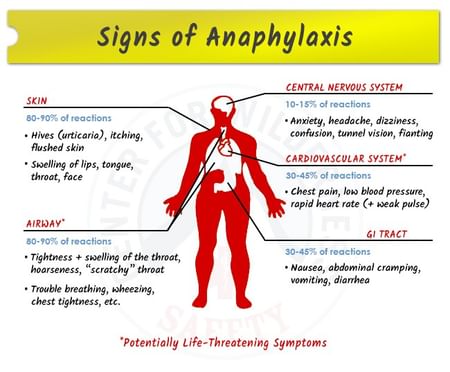|
|
Post by unicat on Oct 30, 2020 22:51:01 GMT
Anaphylaxis (an-a-fi-LAK-sis) is a serious, life-threatening allergic reaction. The most common anaphylactic reactions are to foods, insect stings, medications and latex. If you are allergic to a substance, your immune system overreacts to this allergen by releasing chemicals that cause allergy symptoms. Typically, these bothersome symptoms occur in one location of the body. However, some people are susceptible to a much more serious anaphylactic reaction. This reaction typically affects more than one part of the body at the same time. Anaphylaxis requires immediate medical treatment, including a prompt injection of epinephrine and a trip to a hospital emergency room. If it isn't treated properly, anaphylaxis can be fatal. Certain people are more at risk of anaphylaxis. If you have allergies or asthma and have a family history of anaphylaxis, your risk is higher. And if you've already experienced anaphylaxis once, the risk of having another anaphylactic reaction is increased. Accurate diagnosis and successful management of allergies is essential. An allergist/immunologist, often referred to as an allergist, has specialized training and experience to diagnose the problem and help you develop a plan to protect you in the future. Source: www.aaaai.org/ |
|
|
|
Post by combine on Nov 3, 2020 22:48:27 GMT
Persons with food allergies should generally avoid high-risk types of restaurants, including:
Buffets and deli stations (risk of cross-contact).
Asian cuisine (peanuts, tree nuts used in many dishes).
Bakeries (risk of cross-contact).
Ethnic (language barrier).
|
|